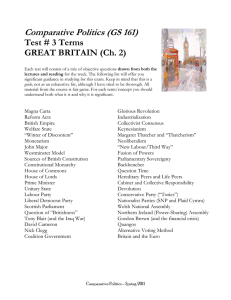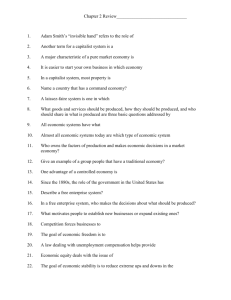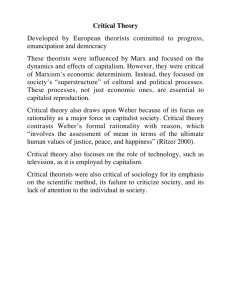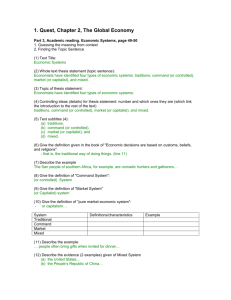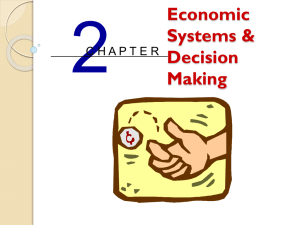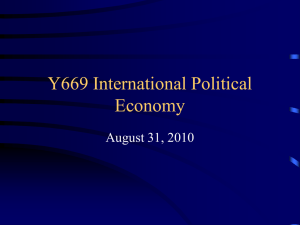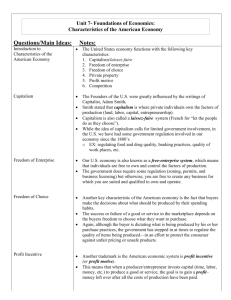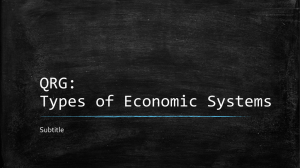The Meaning of New Times
advertisement
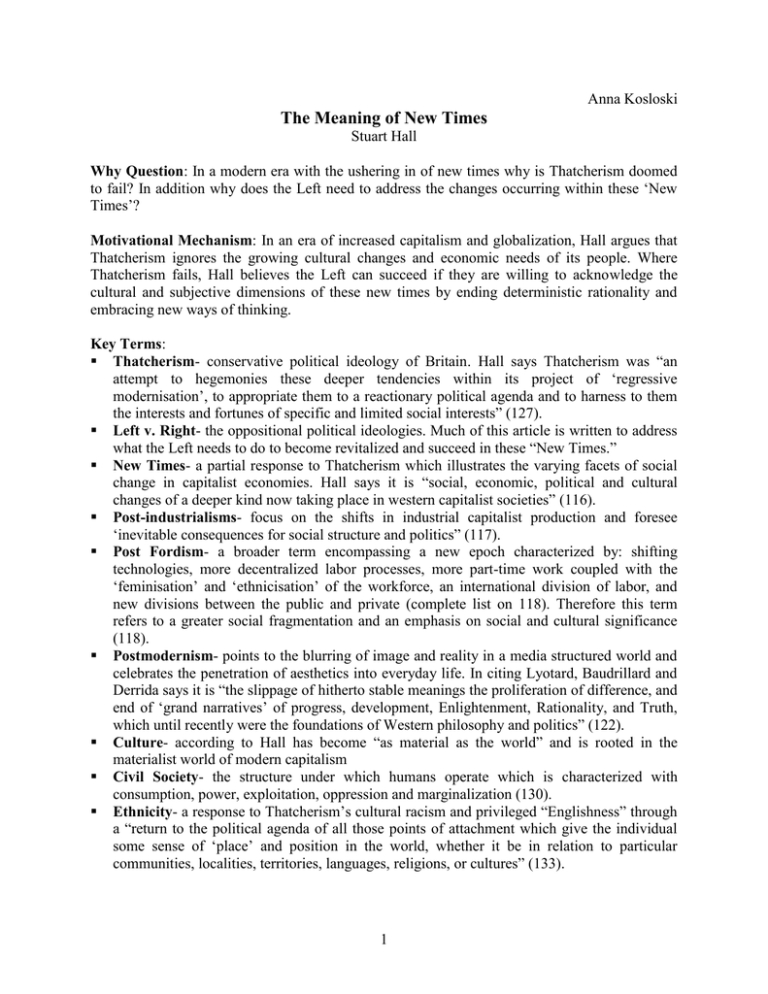
Anna Kosloski The Meaning of New Times Stuart Hall Why Question: In a modern era with the ushering in of new times why is Thatcherism doomed to fail? In addition why does the Left need to address the changes occurring within these ‘New Times’? Motivational Mechanism: In an era of increased capitalism and globalization, Hall argues that Thatcherism ignores the growing cultural changes and economic needs of its people. Where Thatcherism fails, Hall believes the Left can succeed if they are willing to acknowledge the cultural and subjective dimensions of these new times by ending deterministic rationality and embracing new ways of thinking. Key Terms: Thatcherism- conservative political ideology of Britain. Hall says Thatcherism was “an attempt to hegemonies these deeper tendencies within its project of ‘regressive modernisation’, to appropriate them to a reactionary political agenda and to harness to them the interests and fortunes of specific and limited social interests” (127). Left v. Right- the oppositional political ideologies. Much of this article is written to address what the Left needs to do to become revitalized and succeed in these “New Times.” New Times- a partial response to Thatcherism which illustrates the varying facets of social change in capitalist economies. Hall says it is “social, economic, political and cultural changes of a deeper kind now taking place in western capitalist societies” (116). Post-industrialisms- focus on the shifts in industrial capitalist production and foresee ‘inevitable consequences for social structure and politics” (117). Post Fordism- a broader term encompassing a new epoch characterized by: shifting technologies, more decentralized labor processes, more part-time work coupled with the ‘feminisation’ and ‘ethnicisation’ of the workforce, an international division of labor, and new divisions between the public and private (complete list on 118). Therefore this term refers to a greater social fragmentation and an emphasis on social and cultural significance (118). Postmodernism- points to the blurring of image and reality in a media structured world and celebrates the penetration of aesthetics into everyday life. In citing Lyotard, Baudrillard and Derrida says it is “the slippage of hitherto stable meanings the proliferation of difference, and end of ‘grand narratives’ of progress, development, Enlightenment, Rationality, and Truth, which until recently were the foundations of Western philosophy and politics” (122). Culture- according to Hall has become “as material as the world” and is rooted in the materialist world of modern capitalism Civil Society- the structure under which humans operate which is characterized with consumption, power, exploitation, oppression and marginalization (130). Ethnicity- a response to Thatcherism’s cultural racism and privileged “Englishness” through a “return to the political agenda of all those points of attachment which give the individual some sense of ‘place’ and position in the world, whether it be in relation to particular communities, localities, territories, languages, religions, or cultures” (133). 1 According to Hall in order for a system of government to operate in these new times it must operate like a machine with every piece represented and accounted for. The first gear from the top down represents culture. According to Hall everyone deserves an identity, real or imagined that provides people with a sense of place. The “Capitalist Economy” represents the changing economy which is highly global and commodity driven. The political gear is the one that Hall is the most critical of in this article. o Thatcherism has failed to turn with the gears of economy and culture and is doomed to fail. o Hall argues that to keep the machine operating smoothly a new socialism is needed that embraces the pluralism of identities, seeks to be socially responsible, and recognizes the difficulties associated with a capitalist economic market. 2
